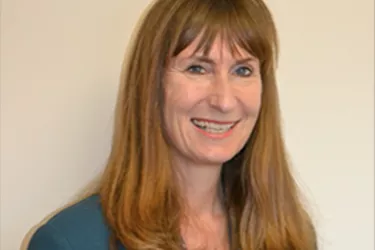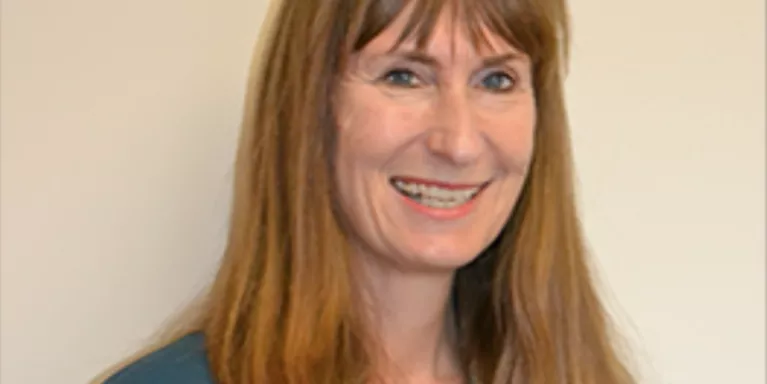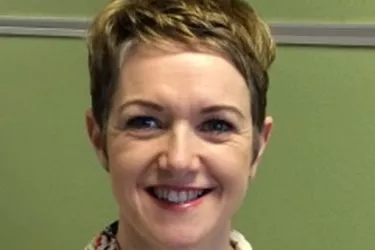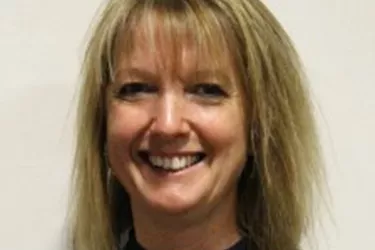Staff at schools need more mental health support
Carole is the Assistant Headteacher at Dr Challoner's Grammar School in Amersham and one of the winners of our Wellbeing Champion awards. She shares why she worked so hard to make her school a better place for staff wellbeing.
Carole Black is the Assistant Headteacher at Dr Challoner's Grammar School in Amersham, and a winner of our Wellbeing Champion award. Our Wellbeing Champion awards recognise two outstanding individuals who have been nominated by their peers for playing a key role in promoting positive mental health in their workplace. Her colleagues say that because of Carole, the school has become a better place for staff and students. By thinking critically about workload Carole has been able to remove some of the demands on staff and offer a more flexible approach to things. Her impact has been huge. Staff are more willing to take on new things and staff absences have fallen. There is a greater sense of staff wellbeing and community.
Working as a teacher has really shown me the importance of wellbeing and mental health at schools. As a student, you can have the best teacher and be at the best school, but if your head isn’t in a good place, it’s so much more difficult to make progress and be the best that you can be.
"We wanted to promote discussion, reduce stigma, make sure support was available for all staff."
When we were considering how to improve the wellbeing of our students, the discussion soon turned to the staff. We realised we needed to take a holistic approach to mental health and wellbeing for everyone at the school. Anyone in work can only be their best if their wellbeing is a priority. We knew we needed to be role models for our students.
We wanted to promote discussion, reduce stigma, make sure support was available for all staff and take preventative action. We started in spring 2015 by getting the whole staff involved in the discussion with two questions – “what can we do to make your job easier?” and “how can we make you happier at work?”. We encouraged people to answer the questions during meetings, as well as anonymously, to try and ensure feedback was as honest and open as possible. The questions we chose hoped to highlight the issues and also encourage suggestions for change. We wanted mental health and wellbeing to be owned and acted on by the whole staff, as effective change would be most likely if there was shared responsibility.
"More and more staff began speaking out when they needed help – and we listened."
The initial feedback covered a huge variety of issues and ideas which fitted into a number of core categories: Change, Workload, Community, Recognition and Environment.
From September 2015, as a school, we started responding to these issues. We began by critically analysing workflows to see how things could be improved to make sure staff wellbeing and work/life balance were factored into decision making. As well as changing workflows, we tried to improve the physical environment. Staff took the initiative to organise activities to promote community and wellbeing – staff “Wimbledon”, yoga, a cake rota, recognising Time to Talk Day and more. More and more staff began speaking out when they needed help – and we listened. We provided resilience training, training on the importance on recovering after stressful periods, promoted staff counselling and the school has now signed up to an Employee Assistance Program. All these actions have been delivered by many staff, reinforcing the collective responsibility and hopefully empowering and encouraging everyone to get involved.
Progress has been achieved not by seeing this as one big initiative which needs a huge amount of time or money, but by taking small steps and not rushing things, so changes are considered, effective and become embedded. We see this as a gradual shift and as something that always needs to be a key consideration in everything that we do. One year later we reviewed our progress and asked similar questions to the staff so we could build on the work to date. Getting involved in the Mind Workplace Wellbeing Index has been another step in our plans, providing us with independent feedback from an organisation that is a leading expert in this field. We hope to use our school’s feedback to continue to improve and learn from the many other organisations and experts involved with Mind, who are working hard to promote mental health.
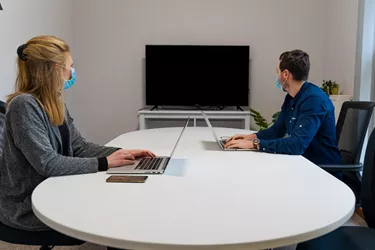

Information and support
When you’re living with a mental health problem, or supporting someone who is, having access to the right information - about a condition, treatment options, or practical issues - is vital. Visit our information pages to find out more.
Share your story with others
Blogs and stories can show that people with mental health problems are cared about, understood and listened to. We can use it to challenge the status quo and change attitudes.










